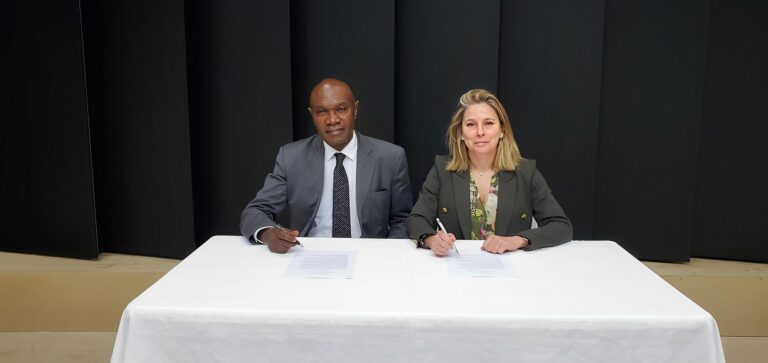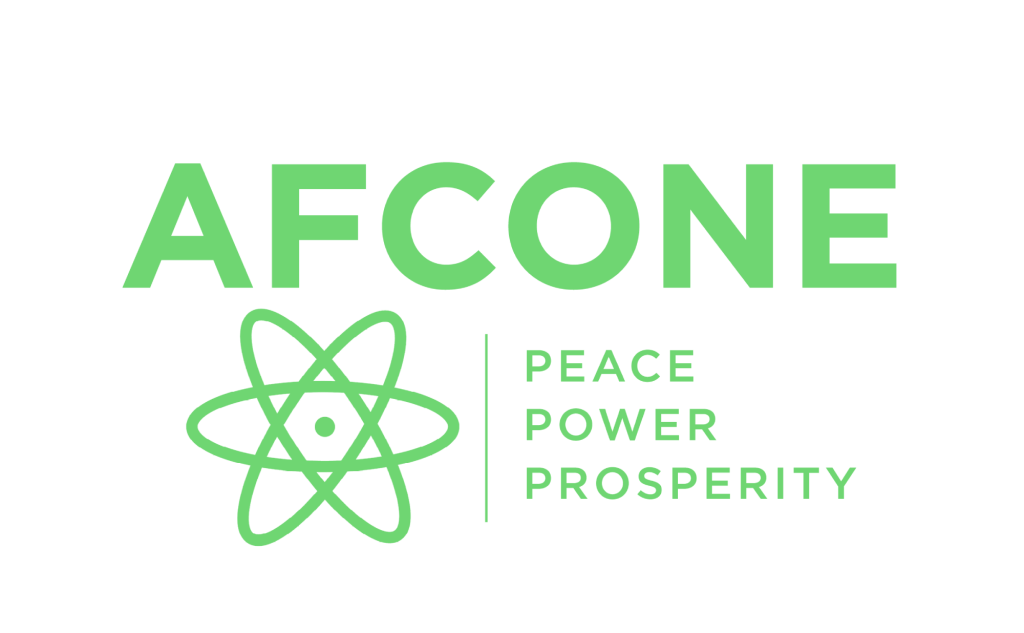African Commission on Nuclear Energy (AFCONE) and World Nuclear Association join together to support sustainable development using nuclear energy in Africa.
This cooperation confirms the shared commitment of both organizations to proactively facilitate the wider understanding of civilian nuclear energy and support the development of nuclear energy in African States. Clean, affordable, and reliable nuclear energy can be a crucial component of Africa’s energy mix.
The purpose of this agreement is to support information sharing and exchange, networking, capacity building, and training. It builds upon ongoing work in Africa from World Nuclear Association, the organization representing the global nuclear industry. The Association will be a leading participant in the upcoming African Energy Week (AEW) 2023, which takes place in Cape Town from 16-20 October this year.
World Nuclear Association is in a unique position to share common messages and best practices from the global nuclear industry with African countries interested in nuclear energy. World Nuclear Association Director General, Dr Sama Bilbao y León remarked, “Nuclear energy offers a golden opportunity to build a cleaner, more equitable world, in which everyone has access to clean abundant affordable 24/7 energy and a high quality of life. The Association has recently engaged with key members and organisations in many African countries, recognising nuclear energy’s enormous potential to support sustainable growth and development in the continent’s energy landscape. I am delighted to partner with AFCONE to help Africa deploy nuclear energy and provide 24/7 clean energy for all.”
Currently, Africa has two nuclear power reactors in operation at the Koeberg plant in South Africa, and four reactors under construction at the El Dabaa plant in Egypt. This plant aims to generate electricity while also providing substantial desalination capacity.
Meanwhile Ghana, Kenya and Nigeria have already made their national decision to deploy nuclear energy and are progressing with plans. African countries exploring the use of nuclear energy include Algeria, Ethiopia, Morocco, Niger, Namibia, Rwanda, Senegal, Sudan, Tanzania, Tunisia, Uganda, and Zambia. The World Nuclear Association Nuclear Fuel Report estimated that by 2040 Africa could have 18 GWe of nuclear power based on current member state plans.
AFCONE Executive Secretary, Enobot Agboraw remarked; “Nuclear energy has been identified among the viable clean energy sources for addressing Africa’s energy poverty. The relative advantage of nuclear energy lies in its ability to provide base load, its long term cost effectiveness, its environmental resilience, and the long operational lifespan of nuclear power plants. Considering Africa’s steep population growth, AFCONE is striving, inter alia, through partnerships with key industry players, such as World Nuclear Association, to urgently expedite the process of deploying nuclear energy capacity in Africa”.
The partnership between African Commission on Nuclear Energy (AFCONE) and World Nuclear Association will serve as a valuable opportunity for knowledge sharing and networking, bringing together nuclear industry stakeholders to advance sustainable socio-economic development in Africa.
###
The African Commission on Nuclear Energy (AFCONE) is the autonomous Pan-African organization that is uniquely mandated under the African Nuclear Weapon Free Zone Treaty (The Treaty of Pelindaba) to serve as the Secretariat of the Treaty, and to engender industrial and socio-economic development in Africa through the coordination and promotion of safe and secure peaceful applications of nuclear science and technology, as well as regional and inter-regional cooperation for that purpose.
For more information, visit https://afcone1.org/who-we-are/
###
World Nuclear Association is the international organisation that represents the global nuclear industry. Its mission is to promote a wider understanding of nuclear energy among key international influencers by producing authoritative information, developing common industry positions, and contributing to the energy debate, as well as to pave the way for expanding nuclear business.
For more information visit, https//world-nuclear.org



